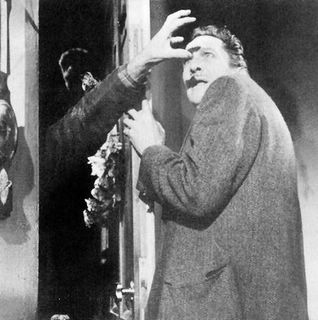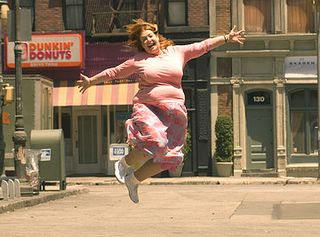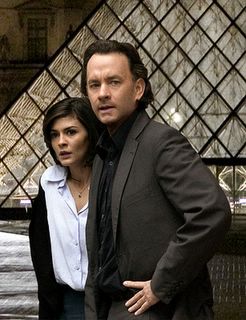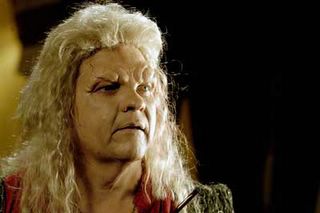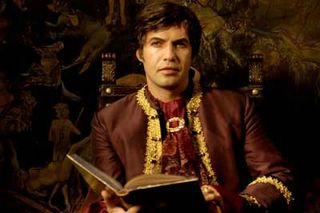I've always ridiculed the belief that violent movies and video games produce violent people. My reasoning was simple - no one enjoys a nice, gory movie or gleefully amoral video game experience more than I, yet I'm probably the least bloodthirsty person I know. I don't even like the sight of blood, really. Makes me light-headed. And the last time I was in a fight, I was in the 6th grade and some oddball whom the cool kids (read: not me) used to tease all the time came up and sucker-punched me in the face. Oddly, I cannot now for the life of me recall that guy's name. (UPDATE: JASON WALSH!)
This was the foundation for my reasoning on the subject. Obviously, movies don't make you violent. I'm not violent! Also, there's the usual generic counter-arguments: there was violence before movies and video games, even if they give you ideas on how to be violent they don't actually make you violent, desensitizing people to fictional on-screen violence isn't the same as desensitizing them to real world violence. And so on.
Lately, I'm starting to second-guess myself. Maybe all these years I've been wrong, desperately trying to cling to an ideology because it is convenient rather than true. I'd like to believe there's no harm caused by violent movies, because violent movies are totally awesome and I enjoy watching them. Ditto games like "Grand Theft Auto," which are amusing to me and don't fill me with the sudden urge to go kill lots of Haitians.
And I still essentially believe this. I don't think a person who is not ordinarily inclined towards violence will play "Grand Theft Auto" and then embark on a carjacking rampage involving the repeated and extraneous chainsawing of pedestrians. It's like being hypnotized - maybe the experience makes you more suggestible but it can't make you violate your own sense of self.
Here's what's troubling me...In our public discourse, I'm starting to notice a considerably more brutal, even homicidal impulse among Americans than I can recall ever hearing previously in my lifetime. That's not to say that there weren't always reprehensible, immoral people attempting to involve our nation in all manner of illicit and nefarious schemes around the world. There were. I just mean that the everyday conversations in America, some crucial part of the zeitgeist, seems to have turned more tribal, more angry and overall far more willing to endure (as a nation) grisly, endless war. People aren't turning more violent, per se, but they're bothered less by the violence in which they're implicated. Namely, the violence carried out by and on their fellow citizens in uniform.
Again, allow some clarification. Americans are obviously upset about the war and growing more so each day. Bush's poll numbers keep dropping for this very reason. (Also, it costs me just over $40 for a tank of gas.) But the fact is that the Democrats are considering putting up John Kerry or Hillary Clinton as nominee for President, two saps tricked into voting for the war initially despite the fact that millions of reasonably intelligent, non-government-employed Americans knew it was bullshit. Beyond politics, nothing actually seems to be happening to bring this war to an end. Americans seem outraged, sure, but only because they think there's too many Mexicans around.
Here's an AP article about a new video game that carefully and closely simulates the Columbine Massacre. Yeah, you play as either Dylan Klebold or Eric Harris, the disaffected pseudo-goth assholes who decided that the popular kids at their school were so unbearable, the only proper, fitting reaction was murder-suicide. Hey, could Heathers have turned these two into killers?
No, I'm just kidding. Clearly, they were too young to remember Heathers and preferred The Matrix.
The game, Super Columbine Massacre RPG, was posted on a Web site last year, but is becoming more popular now. It draws on investigative material, including images of Dylan Klebold and Eric Harris, who killed 12 classmates and a teacher before committing suicide.
Players are told it is "ultimately up to you" how many people Harris and Klebold kill that day. Each time Harris and Klebold kill someone in the game, a dialogue box pops up that says: "Another victory for the Trench Coat Mafia."
They settled on that as a catch phrase after "Sorry, Dylan and Eric, but your princess is in another cafeteria" was deemed to insensitive.
Gross, right? Clearly in appropriate and tasteless, sure. Maybe the gameplay and graphics are totally sweet. But it's a bit ghoulish, no? Ironically, an Internet game like this is going to appeal to a lot of high schooler students, who you would think are the people most likely to feel a connection to the Columbine victims. But I guess they relate to the put-upon, bullied students as well. (Also, with a game like this, the curiosity factor has to play a big role. People check it out and give it a try to see what all the fuss is about, to gauge how offensive the game really is, and not just out of some sick desire to recreate Columbine.)
Allow me to clarify here. I'm not saying that playing a game like Super Columbine Massacre RPG will make you a murderer. (And what's with that title? Super Columbine Massacre RPG? Is this a Super Famicom game? Sounds like it was badly translated from Japanese. All your base are belong to the Trenchcoat Mafia.) I'm just starting to think that the cumulative effect of years and years of violent culture - movies, TV, video games - may be starting to dull Americans sensitivity to real world violence.
With the Iraq War increasingly out of control, you've got to start wondering about this 30% or so of Americans who still think the President's doing a great job. What would it take for these people to abandon the glorious notion of a grand American conquest in the Middle East? How much killing and death is required? Or will this point never come until they and their families, personally, are the ones dying? Could all of these video games glorifying past U.S. military conquests, these rah-rah jingoistic action films coupled with the weekly adventures of Hero Terrorist-Killer Jack Bauer be convincing Americans that war is always an appropriate answer for conflict resolution?
I sometimes read the larger right-wing blogs, both to find hilarious things to goof on here and to keep abreast with what the other side is talking about. Much as I enjoy lefty blogs like Firedoglake, it can begin to feel like an echo chamber over there...Hundreds of intelligent, interesting progressives all making and then repeating back cogent arguments to one another, but struggling to find new, like-minded and specifically young voters to join the cause. Like Fahrenheit 911 - an interesting, provocative film that just didn't win over many citizens who weren't already emotionally committed to the anti-war movement.
It's not surprisng, though, that right-wing blogs and die-hard Republicans continue to defend this horrific war. They're invested in Iraq. Personally. Emotionally. Not just because of their staunch party loyalty, but because of their own reputations and livelihoods. They, the American Right and the Fans of GWB, have taken on this war as their cause, arguing in favor of its continuation and expansion every day and rebuffing those who would cry out for peace with the maximum legally allowable level of scorn and venom. Now that the violence in Iraq has turned in on itself, away from isolated insurgent attacks and into full-blown Civil War, their hawkish calls for escalation seem more desperate but no less enthusiastic.
What's interesting, to me, is the way they couch their arguments. Jeff Goldstein over at Protein Wisdom treats the escalation of war as an academic exercize. (If you scroll down to the comments section of this post, you can see me try and fail to make this very case to the man himself). He phrases a call to arms in the most abstract manner he can muster. For example, check out this post, in which Goldstein discusses his fairly straight-forward argument that Americans are afraid to act aggressively because of guilt over perceived past white European "offenses":
And it is a fight for the soul of classical liberalism, which is being undercut (in my estimation) by nearly 40 years of a concerted effort by those whose goal is power and control to relativize meaning and deconstruct, through incoherent linguistic assertions that have unfortunately been widely adopted out of self-satisfied feel-goodism (specifically, an ostensible deference to the Other that allows us to convince ourselves we are “tolerant” and “diverse,” when in fact we have created the conditions to turn those ideas into something approximating their exact opposites).
A simple argument, couched in wordy, sub-graduate school jargon. He's saying "a lot of Americans feel bad about killing browns, but they shouldn't." I'd stress again, the man is arguing that we should increase our level of military aggression overseas because he feels like we're not seen as appropriately tough and strong-willed abroad.
Which is why there are times when we really should turn off the “smart” bombs and show our seriousness by putting the world on notice that, when we believe the situation calls for it, we are willing to ignore the inevitable bad press and the howls of protest from human rights groups, and exhibit a show of strength and military professionalism that is politically disinterested and tactically thorough and lethal.
Jeff wants us, as a nation, to stop caring as much about murdering civilians. As if we cared at all already! But you can't write a blog post saying, "I'm tired of Americans being such pussies about war. Let's kill a lot more people indiscriminately." (And what else is being implied when you suggest making bombs less smart?) Even doofuses can see through that. But to say that we are "showing our seriosuness," disengaging from our pre-9/11 feel-goodism and embracing a more pro-active, concerted effort at "military professionalism"...That's the kind of argument people whose sense of right and wrong has been dulled can get behind.
(I don't want to belabor this point, but another technique Jeff uses to dilute his arguments and make them more palatable is to add on an endless string of clarifications and conditions. Above, he throws in a "when the situation calls for it." At other times, he uses similar phrases - we should be more violent "when the time is right," "according to the situation on the ground," "as determined by generals and military officers" - not to make his point clearer but to muddy the water, to give him an easy out when people call him on being a bloodthirsty warmonger content to send other people into battle while he lounges comfortably at home.)
It's no surprise that weasels like Jeff try to make these arguments. There have always been sadists and creeps and weirdos and ineffectual, frustrated little men who relish the idea of foreign wars as a way to confer some kind of abstract glory on to themselves. That's nothing new. It just seems to me that Americans have become more receptive to these kinds of arguments, that they're less willing to engage in real discussions about foreign policy and more quick to make value judgements based on conventional wisdom. "Iran is obviously an evil country with crazy leaders set on world domination. We have to stop them at all costs, even if it costs thousands of American lives and even more Iranian lives." No one needs proof. Americans are ready and willing not only to believe the worst about other nations, but to act swiftly and harshly in response to even a whiff of assertiveness from foreigners. (Or "The Others," to use Lacanian-Goldsteinian terminology).
Which brings me around to my final point...The Iraq Conflict may be the first wholly Symbolic War. (Well, okay, maybe the Faukland Islands...) We're experiencing both figurative and literal world conflict, but the only one that seems to concern Americans is the War of Ideas and Images. The First Post-Modern Simulation War.
We don't see the coffins of dead American soldiers arrive back on these shores. We don't see images of the fighting or even hear reports about specific conflicts because the environment is too dangerous for journalists and photogs to get close. Casualty counts are always inaccurate, and on the Iraqi side practically nonexistent. We hear about prisoner abuse and torture, but you have to go hunt around online to see any of the available evidence, and even then we're told that far worse infractions are kept from the public. No one's actions in the region, from the President to the Secretary of Defense on down, seem to have any actual consequences, and the rhetoric never shifts or changes at all. No one, in or outside of the press, even talks about the vast amount of soldiers returning from Iraq with severe physical wounds or crippling emotional trauma or both.
What we're shown, instead, are symbolic signposts of progress. A Mission Accomplished banner. A Saddam statue toppled and the man himself hauled before a judge. The raised purpled fingers of recent Iraqi voters. Bush carving up a turkey for the troops.
This isn't the reality of life in Iraq. These are photo ops, public relations events. I'm not saying there isn't any value in a people getting to vote for the first time. But this is a side story, a footnote. "There was a mostly-meaningless vote in Iraq today for some partisan, radical short-term beurocrats who still won't be able to bring any kind of end to the chaos, and may in fact exacerbate the already-intense situation." Great! Terrific! Now tell me about all the important stuff that happened.
Not to mention the endless drone about good news. There's so much good news in Iraq that doesn't get reported! Schools opening and police units forming and infrastructure being built! A middle-aged shopowner in Basra ate an entire strawberry ice cream cone and it tasted really good and he didn't get any sand in it or anything!
I used to think this blather was a distraction, a way for fans of the war to change the subject and throw the "Iraq's a quagmire" meme into doubt. But that's thinking too small. This notion - that the war went well but the media only told one side - will likely end up our Alternate History of Iraq. It's going to be a substitute for reality. If Americans believe that things are going well in Iraq, well that's how things are going to go, actual events be damned!
Which is why bloggers like Jeff and Instapundit and all the others keep insisting that we stop complaining about Bush's war. It's not because negative words on the Internet or in the newspaper will increase American or Iraqi casualties. Obviously, that's impossible. Not to mention, they don't care about that stuff.
Here's Glenn Reynolds of InstaPundit:
While every lost serviceman and servicewoman is certainly tragic and should be mourned, the actual statistics tell quite a different tale from the MSM and Democratic doom-and-gloom outlook. Comparing the numbers of lost US military personnel to past years, and past presidential terms, may even be a shock to supporters of the war.
...
In 2004, more soldiers died outside of Iraq and Afghanistan than died inside these two war zones (900 in these zones, 987 outside these zones). The reason is that there are usually a fair number that die every year in training accidents, as well as a small number of illness and suicide. Yet the MSM would make you think that US soldiers are dying at a high number in these zones, and at a significantly higher number than in past years or under past presidents. This is all simply outright lies and distortion.
Yeah, that ain't so bad! You gotta break a few eggs, am I right?
Check out blogger Tigerhawk in November of 2005:
The total Coalition casualties in all of Iraq in two and a half years of war barely exceed the Allied casualties on June 6, 1944, the single opening day of the Normandy invasion.
Yeah, I mean...only a few more dead Americans than the D-Day Invasion, you little whiners! You call that death?
Again, it's not that they think criticism is going to cause an actual increase in American deaths or terrorism. And it's certainly not that they think it will cause an increase in dead Iraqis. It's just symbolically bad, it makes them look bad, and the war only works if Americans think it works. How far removed have we all become? How insulated? Can we not realize that, because our politicians and leaders do nothing, our money is used to ensure that more and more people get tortured and killed in Iraq every day? It's not Swordfish, where John Travolta is going to use a bazooka to make the world safe for gay haircuts! This is not a video game! This is not a movie! Let's not have a probing and rational discussion about the benefits of war in the modern world marketplace! Let's stop killing people and getting ourselves killed in the process.
An odd quote to end this rambling piece on post-modernism. From Richard Castaldo, a survivor of the Columbine shooting, discussing that video game based on his tragic experience.
Richard Castaldo, who was paralyzed from the chest down in the attack, played the game after reading about it on a gaming Web site. He said it reminded him of the 2003 film "Elephant," which follows students and others on the day of a school massacre without assigning reasons or blame for the bloodshed.
"It didn't make me mad, just kind of confused me," he said. "Parts of it were difficult to play through, but overall, I get the feeling it might even be helpful in some ways. I don't think it's bad to discuss."
Fascinating. First, notice that playing a game based on a violent incident in which he was a participant reminds Richard of seeing a movie with a similar theme. It doesn't remind him of actually being at Columbine High School that day? It reminds him of the movie that vaguely recreates this experience?
Second, and here's the part I'd really love to ask Richard about...Why might this game be helpful? How would a game simulating digitally a school shooting enlighten or edify the game's players? I'm not trying to say I have an answer to these questions, or if there even is an answer, but it demonstrates on some level how our minds discern between fantasy and reality, between simulation and reality.
